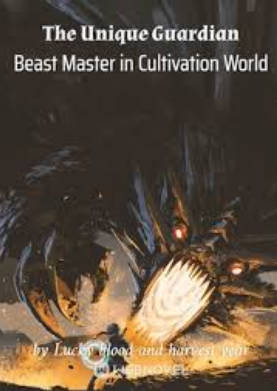v3 Chapter 330: Export-oriented economy?
On November 25, 1867, William IV continued to promote his ministers' familiarity with the importance of industrialization.
"But buying at a high price doesn't seem to be worthwhile for big companies. It takes too long to invest and recover costs, so many companies give up because of this. As we all know, the nobles and big capitalists of various countries hold a lot of land resources. , which is a major constraint for industrialization. So the land issue is also the key.”
William IV couldn't help thinking of the populous Indian country in his previous life. The country's industrialization was difficult to achieve, and it was difficult to implement land acquisition.
The Chancellor of the Exchequer, Jane von Capellor, suddenly brightened his eyes and asked, "Therefore, Your Majesty has traded Australia, New Guinea, etc., which are isolated overseas with the United Kingdom, but here is the Dutch mainland, which is different from the Dutch East Indies. The Dutch nobles and The wealthy people have not yet started to hoard the land, which has been completed in an instant for the land of the three major factors in the process of industrialization in the Netherlands.”
William IV smiled and said: "Yes, this is my purpose. The Australian continent is enough to make the industrial land use of the Netherlands double dozens or hundreds of times. Such a large space use is enough to make the Dutch industrial land use earth-shaking.
Although it is not local, it is far from the place of disputes and is more suitable for a paradise to avoid threats from the world. Therefore, the future industrialization of the Netherlands will need to be maintained there. After all, if the Napoleonic Wars happen again in Europe one day, everyone thinks how confident we are To live here, I think, everyone should not want to see the fruits of the Netherlands' hard-working industrialization become the wedding clothes of others."
Hearing that, all the people present were stunned for a moment, but they were soon relieved.
In the past, I knew that His Majesty attached importance to that side, but when His Majesty had not made it clear, he still did not quite understand the reason.
At the same time, they all decided that after the meeting, they would consider how to invest and purchase land in the Far East, especially in Australia, and at least build a second family asset there, so as to prevent future wars, it would not be so rushed. Under the circumstances, there are no assets or heavy losses.
William IV saw the thoughts of everyone's actions in his eyes, and was extremely satisfied. This is what he wanted.
Everyone has their own little ninety-nine, and the future structure that they have revealed a little bit is to be promoted by these core Dutch figures. After all, capital also depends on the wind direction. If these people in the heart of the Netherlands are unmoved, those capital How would it be willing to speed up the transfer of assets to the Far East.
Therefore, William IV's "leakage" was intentional.
"A large-scale domestic market is the foundation of industrialization. The essence of industrialization is to use domestic industrial products to meet domestic needs, while exporting to foreign countries to complete a virtuous circle of the industrial chain."
William IV said: "A stable and protected domestic market is a prerequisite for starting industrialization. For countries that have just started industrialization, if the domestic market base is not enough orders of magnitude, it often means that the scale of industrialization is not enough, and insufficient scale means competitiveness. If you can't get up, if you don't have competitiveness, industrialization will be under the impact of foreign commodities, it will not grow up and die prematurely.
Therefore, the trade protection policy based on the protection of the country's industrialization demands is very important. Without protecting the country's fragile industries, when the most powerful industrialized country like the United Kingdom competes, the result is obvious. It will be defeated and crushed, and the domestic market will be occupied by others.
Therefore, as you can see, the United Kingdom has actively expanded its overseas market while protecting its domestic market for decades. Continent Europe, North America, the Indian subcontinent, and the Ottoman Empire have all become their largest sales destinations for their products, even in the past 20 years. It also opened the door to the trading country of the big country in the Far East, and took the most important step for the dumping of their industrial products. This is why the British industrialization is the most advanced.
The current market of the Netherlands is that it competes with Prussia in the Tsarist Russian Empire, and also competes with the United Kingdom and Prussia in Northern Europe. However, with the alliance of the Netherlands with Sweden and Denmark, it began to gain the upper hand. Around the Tsarist Empire, because Alexander II favored goods in favor of the Netherlands.
The American countries are also the distribution centers and sales centers of Dutch goods, and the Kingdom of Siam is also a battlefield for our commercial competition with the British. Although this time, although the two countries are united against the cause of the destruction of our common market by the French Empire, the two countries are allied against Napoleon III, but as long as As soon as the war is heard, the two countries will continue to carry out life-and-death commercial battles there. "
With William IV's comprehensive and detailed explanation, everyone present could not help but see a world trade map, of which the United Kingdom occupies the largest share, and the trading site of Dutch commodities seems to be not small.
This made everyone present proud.
Because everyone knows that this is the result of the collective efforts of His Majesty William IV after he came to power and under his leadership.
"Your Majesty, can every country with the three major elements of capital, population and market be able to complete industrialization?"
All you can see is that the question was raised by Wem Cotter, Minister of Industry.
"Of course not," William IV categorically vetoed.
"Why?" Home Secretary Jonrell asked.
William IV looked at the curious eyes, and said: "Because, industrial households also have roadblocks, I call it the resource curse"
"Resource curse?" Everyone looked at William IV in confusion.
"The most commonly used word to describe a country's wealth is its vast territory and abundant resources. There are many homegrown countries with the largest area in the world, and there are also many countries with rich products, such as Brazil and Argentina in South America. The food of these two countries is exported every year, and countries in Europe and the United States export their food every year. of mining giants are prospecting and mining in their country.
The Tsarist Russian Empire is right in front of us, spanning across the Eurasian continent, the Ottoman Empire can be described as a vast land and resources, these countries can be described as unique talents.”
All of these countries listed by William IV are one of the largest countries in the world. It is precisely because William IV listed them. Obviously, depending on the situation, these countries will become the target countries that His Majesty William IV is not optimistic about becoming an industrialized country. So they were instantly intrigued by the reason.
William IV answered why without them waiting too long.
"These countless countries do not seem to have a strong industrialized country at present. The Tsarist Empire, the only industrial strong point, is still just getting started. Heavy industry firearms and shells can't meet its own needs, not to mention other, light industry is even worse."
Other countries even more so. "
"Why is this happening?" Foreign Minister Haysbet Feng couldn't help but ask everyone's heartfelt thoughts.
William IV gave a bizarre answer: "The resources are too rich, which in turn affects industrialization"
Greeting all the strange glances, William IV said:
"When a country has too many natural resources, it becomes relatively easy to make money, and then there is no spirit of hard work, and then it will fall into the resource trap. To put it simply, the resources are too rich and inexhaustible. Therefore, they all depend on tossing about industrialization, and the citizens are here to find jobs. After all, going to work is very tiring. How can this be reflected?
Let me give an example. Argentina has a population of 2.6 million, but the land that can grow food in the country is millions of square kilometers, which is dozens of times that of the Netherlands, but its population is half that of the Netherlands. They have an advantageous position in front of them, so they are reluctant to give up this advantage, after all, Brazil and the Confederate States of South America are also exporting grain.
The country maintains a high proportion of the food funds sold in a series of planting crops, such as planting, so little funds can be invested in industrialization, so the long-term industrialization growth is very slow.
Even if it is a short-term investment boom on a whim, it is also because of the income generated by the investment in food demand. The long-term industrial growth of Real Madrid is because of the income generated after a round of investment, which is enough for this country to live prosperously. The move that was originally used to give them benefits and reduce taxes was very puzzled and dissatisfied, which made Argentina unstable in the process of industrialization.
After the premise of the investment in food planting, they can sit and watch the plantation produce countless grains, exchange grain for industrial products from various countries, and live a very happy and high welfare life. What about these people who are used to high welfare and simple life? Concerned about the country's industrial production? Is it enough to buy it with the money from selling food and minerals? "
Argentina is like this Brazil, the Confederate States of America and the Russian Empire and other resource-producing countries are also like this.
As a result, such a country has fallen into what I think is the resource curse, and can live a good life by relying on the wealth given below, and industrialization will naturally fail to develop. Such an industry, when confronted with a large number of high-quality and cheap foreign products from major industrial powers, is bound to gradually disappear under the squeeze of the powers. "
William IV thought of the top ten ri country and stick-country. These two countries are both resource-poor countries, their territories are not large, and there is no food to be rewarded by God. They can only work hard to industrialize, but use their own efforts to achieve. After industrialization, William IV couldn't help but sigh: Therefore, no matter how poor people are, they need more effort. As long as they are willing to work, it is easier to achieve success. For the country and individuals, the truth is the same.
In fact, the current model of the Netherlands is the same as the model of the two countries. Both have developed export-oriented industrialization. However, this era is not the era of globalization. This era is actually a conservative era. The state-power is very tight, especially the tariff issue, which is the life-blood of various European and American countries, do you want it? no way.
That's why William IV began to work hard to transform. After all, no matter how good the development is, it is not enough for people to be destroyed in an instant, so what's the use?
"But buying at a high price doesn't seem to be worthwhile for big companies. It takes too long to invest and recover costs, so many companies give up because of this. As we all know, the nobles and big capitalists of various countries hold a lot of land resources. , which is a major constraint for industrialization. So the land issue is also the key.”
William IV couldn't help thinking of the populous Indian country in his previous life. The country's industrialization was difficult to achieve, and it was difficult to implement land acquisition.
The Chancellor of the Exchequer, Jane von Capellor, suddenly brightened his eyes and asked, "Therefore, Your Majesty has traded Australia, New Guinea, etc., which are isolated overseas with the United Kingdom, but here is the Dutch mainland, which is different from the Dutch East Indies. The Dutch nobles and The wealthy people have not yet started to hoard the land, which has been completed in an instant for the land of the three major factors in the process of industrialization in the Netherlands.”
William IV smiled and said: "Yes, this is my purpose. The Australian continent is enough to make the industrial land use of the Netherlands double dozens or hundreds of times. Such a large space use is enough to make the Dutch industrial land use earth-shaking.
Although it is not local, it is far from the place of disputes and is more suitable for a paradise to avoid threats from the world. Therefore, the future industrialization of the Netherlands will need to be maintained there. After all, if the Napoleonic Wars happen again in Europe one day, everyone thinks how confident we are To live here, I think, everyone should not want to see the fruits of the Netherlands' hard-working industrialization become the wedding clothes of others."
Hearing that, all the people present were stunned for a moment, but they were soon relieved.
In the past, I knew that His Majesty attached importance to that side, but when His Majesty had not made it clear, he still did not quite understand the reason.
At the same time, they all decided that after the meeting, they would consider how to invest and purchase land in the Far East, especially in Australia, and at least build a second family asset there, so as to prevent future wars, it would not be so rushed. Under the circumstances, there are no assets or heavy losses.
William IV saw the thoughts of everyone's actions in his eyes, and was extremely satisfied. This is what he wanted.
Everyone has their own little ninety-nine, and the future structure that they have revealed a little bit is to be promoted by these core Dutch figures. After all, capital also depends on the wind direction. If these people in the heart of the Netherlands are unmoved, those capital How would it be willing to speed up the transfer of assets to the Far East.
Therefore, William IV's "leakage" was intentional.
"A large-scale domestic market is the foundation of industrialization. The essence of industrialization is to use domestic industrial products to meet domestic needs, while exporting to foreign countries to complete a virtuous circle of the industrial chain."
William IV said: "A stable and protected domestic market is a prerequisite for starting industrialization. For countries that have just started industrialization, if the domestic market base is not enough orders of magnitude, it often means that the scale of industrialization is not enough, and insufficient scale means competitiveness. If you can't get up, if you don't have competitiveness, industrialization will be under the impact of foreign commodities, it will not grow up and die prematurely.
Therefore, the trade protection policy based on the protection of the country's industrialization demands is very important. Without protecting the country's fragile industries, when the most powerful industrialized country like the United Kingdom competes, the result is obvious. It will be defeated and crushed, and the domestic market will be occupied by others.
Therefore, as you can see, the United Kingdom has actively expanded its overseas market while protecting its domestic market for decades. Continent Europe, North America, the Indian subcontinent, and the Ottoman Empire have all become their largest sales destinations for their products, even in the past 20 years. It also opened the door to the trading country of the big country in the Far East, and took the most important step for the dumping of their industrial products. This is why the British industrialization is the most advanced.
The current market of the Netherlands is that it competes with Prussia in the Tsarist Russian Empire, and also competes with the United Kingdom and Prussia in Northern Europe. However, with the alliance of the Netherlands with Sweden and Denmark, it began to gain the upper hand. Around the Tsarist Empire, because Alexander II favored goods in favor of the Netherlands.
The American countries are also the distribution centers and sales centers of Dutch goods, and the Kingdom of Siam is also a battlefield for our commercial competition with the British. Although this time, although the two countries are united against the cause of the destruction of our common market by the French Empire, the two countries are allied against Napoleon III, but as long as As soon as the war is heard, the two countries will continue to carry out life-and-death commercial battles there. "
With William IV's comprehensive and detailed explanation, everyone present could not help but see a world trade map, of which the United Kingdom occupies the largest share, and the trading site of Dutch commodities seems to be not small.
This made everyone present proud.
Because everyone knows that this is the result of the collective efforts of His Majesty William IV after he came to power and under his leadership.
"Your Majesty, can every country with the three major elements of capital, population and market be able to complete industrialization?"
All you can see is that the question was raised by Wem Cotter, Minister of Industry.
"Of course not," William IV categorically vetoed.
"Why?" Home Secretary Jonrell asked.
William IV looked at the curious eyes, and said: "Because, industrial households also have roadblocks, I call it the resource curse"
"Resource curse?" Everyone looked at William IV in confusion.
"The most commonly used word to describe a country's wealth is its vast territory and abundant resources. There are many homegrown countries with the largest area in the world, and there are also many countries with rich products, such as Brazil and Argentina in South America. The food of these two countries is exported every year, and countries in Europe and the United States export their food every year. of mining giants are prospecting and mining in their country.
The Tsarist Russian Empire is right in front of us, spanning across the Eurasian continent, the Ottoman Empire can be described as a vast land and resources, these countries can be described as unique talents.”
All of these countries listed by William IV are one of the largest countries in the world. It is precisely because William IV listed them. Obviously, depending on the situation, these countries will become the target countries that His Majesty William IV is not optimistic about becoming an industrialized country. So they were instantly intrigued by the reason.
William IV answered why without them waiting too long.
"These countless countries do not seem to have a strong industrialized country at present. The Tsarist Empire, the only industrial strong point, is still just getting started. Heavy industry firearms and shells can't meet its own needs, not to mention other, light industry is even worse."
Other countries even more so. "
"Why is this happening?" Foreign Minister Haysbet Feng couldn't help but ask everyone's heartfelt thoughts.
William IV gave a bizarre answer: "The resources are too rich, which in turn affects industrialization"
Greeting all the strange glances, William IV said:
"When a country has too many natural resources, it becomes relatively easy to make money, and then there is no spirit of hard work, and then it will fall into the resource trap. To put it simply, the resources are too rich and inexhaustible. Therefore, they all depend on tossing about industrialization, and the citizens are here to find jobs. After all, going to work is very tiring. How can this be reflected?
Let me give an example. Argentina has a population of 2.6 million, but the land that can grow food in the country is millions of square kilometers, which is dozens of times that of the Netherlands, but its population is half that of the Netherlands. They have an advantageous position in front of them, so they are reluctant to give up this advantage, after all, Brazil and the Confederate States of South America are also exporting grain.
The country maintains a high proportion of the food funds sold in a series of planting crops, such as planting, so little funds can be invested in industrialization, so the long-term industrialization growth is very slow.
Even if it is a short-term investment boom on a whim, it is also because of the income generated by the investment in food demand. The long-term industrial growth of Real Madrid is because of the income generated after a round of investment, which is enough for this country to live prosperously. The move that was originally used to give them benefits and reduce taxes was very puzzled and dissatisfied, which made Argentina unstable in the process of industrialization.
After the premise of the investment in food planting, they can sit and watch the plantation produce countless grains, exchange grain for industrial products from various countries, and live a very happy and high welfare life. What about these people who are used to high welfare and simple life? Concerned about the country's industrial production? Is it enough to buy it with the money from selling food and minerals? "
Argentina is like this Brazil, the Confederate States of America and the Russian Empire and other resource-producing countries are also like this.
As a result, such a country has fallen into what I think is the resource curse, and can live a good life by relying on the wealth given below, and industrialization will naturally fail to develop. Such an industry, when confronted with a large number of high-quality and cheap foreign products from major industrial powers, is bound to gradually disappear under the squeeze of the powers. "
William IV thought of the top ten ri country and stick-country. These two countries are both resource-poor countries, their territories are not large, and there is no food to be rewarded by God. They can only work hard to industrialize, but use their own efforts to achieve. After industrialization, William IV couldn't help but sigh: Therefore, no matter how poor people are, they need more effort. As long as they are willing to work, it is easier to achieve success. For the country and individuals, the truth is the same.
In fact, the current model of the Netherlands is the same as the model of the two countries. Both have developed export-oriented industrialization. However, this era is not the era of globalization. This era is actually a conservative era. The state-power is very tight, especially the tariff issue, which is the life-blood of various European and American countries, do you want it? no way.
That's why William IV began to work hard to transform. After all, no matter how good the development is, it is not enough for people to be destroyed in an instant, so what's the use?







